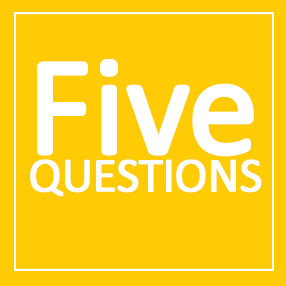
 There’s a lot of speculation now that Apple has finally announced its revamped streaming music service as to just what that service will eventually become. With Apple's acquisition of Dr. Dre’s Beats music and the recent launch of Tidal, a subscription service started by Jay Z and a variety of other music artists, and the continued popularity of Spotify and Pandora, it appears to be a crowded field. How many music services does one need? We recently posed “Five Questions” to Tamir Koch, Founder and CEO of MyMusicCloud, which is a “locker-based,” rather than subscription-based,service.
There’s a lot of speculation now that Apple has finally announced its revamped streaming music service as to just what that service will eventually become. With Apple's acquisition of Dr. Dre’s Beats music and the recent launch of Tidal, a subscription service started by Jay Z and a variety of other music artists, and the continued popularity of Spotify and Pandora, it appears to be a crowded field. How many music services does one need? We recently posed “Five Questions” to Tamir Koch, Founder and CEO of MyMusicCloud, which is a “locker-based,” rather than subscription-based,service.
Why MyMusicCloud? What do you think is your singular unique proposition to music consumers?
MyMusicCloud is the only music service that works with any device from any brand. Unlike iCloud that only syncs with Apple products, MyMusicCloud allows users to untether themselves from a particular brand and enables unprecedented sharing of music libraries by people with a variety of devices. Additionally, it is free and works both online and offline, anywhere in the world. Together, these features provide the greatest freedom for users, which is why it is so popular around the world.
The latest upstart is Tidal, who seem to be hanging their hat on an “artist connection” and “expertly curated Editorial.” Is this a fundamentally different approach from MyMusicCloud as a “music locker?”
Yes. MyMusicCloud is a very different service from Tidal, as well as all other music services. Whereas, MyMusicCloud is a free ‘music locker’ that stores users’ curated, and owned music libraries that they can add to via our store or any other, Tidal is a subscription-based streaming service of music that is not owned by the users.
So with the Tidal entry and iTunes, Spotify, and Pandora, how does a consumer determine which service is best for them?
What a user is looking for will determine which service is best for them. For music aficionados who have carefully curated their own music libraries and want to be able to listen to them anytime, anywhere, a ‘music locker’ service such as MyMusicCloud or iTunes/iCloud is ideal. Again, the major difference is that iTunes can only be used on Apple products, while MyMusicCloud can be used on any brand’s products, which, for true music lovers, is a tremendous benefit as new and improved devices are constantly being developed.
Tidal and Spotify can also play the exact music a user is looking for, but it’s a pay-for subscription service and, in the end, the users don’t ultimately own the music.
Pandora is the third type of service, Internet radio, where the programmers determine what users will hear based on broad preferences and, again users do not own the music.
You’ve recently embraced the Samsung smartwatch and, presumably the Apple will follow. What, in your opinion, is the upside and future of smartwatches?
As phones are getting larger, consumers are looking for and embracing, small, accessible screens for basic features and services. This makes smartwatches a great device for music, as it puts that dashboard right on your wrist instead of tucked away in your pocket or purse.
We have to ask: can people store and access e-books or books on tape at MyMusicCloud? You know, maybe some music books?
Sure. MyMusicCloud can store and play any digital file and, though it’s too early to say anything specific, this offering is about to get even better. We’ll be sure to keep you posted!
#MyMusicCloud #AppleMusic #Beats1 #Spotify #Pandora
- AMB Blog's blog
- Log in or register to post comments
